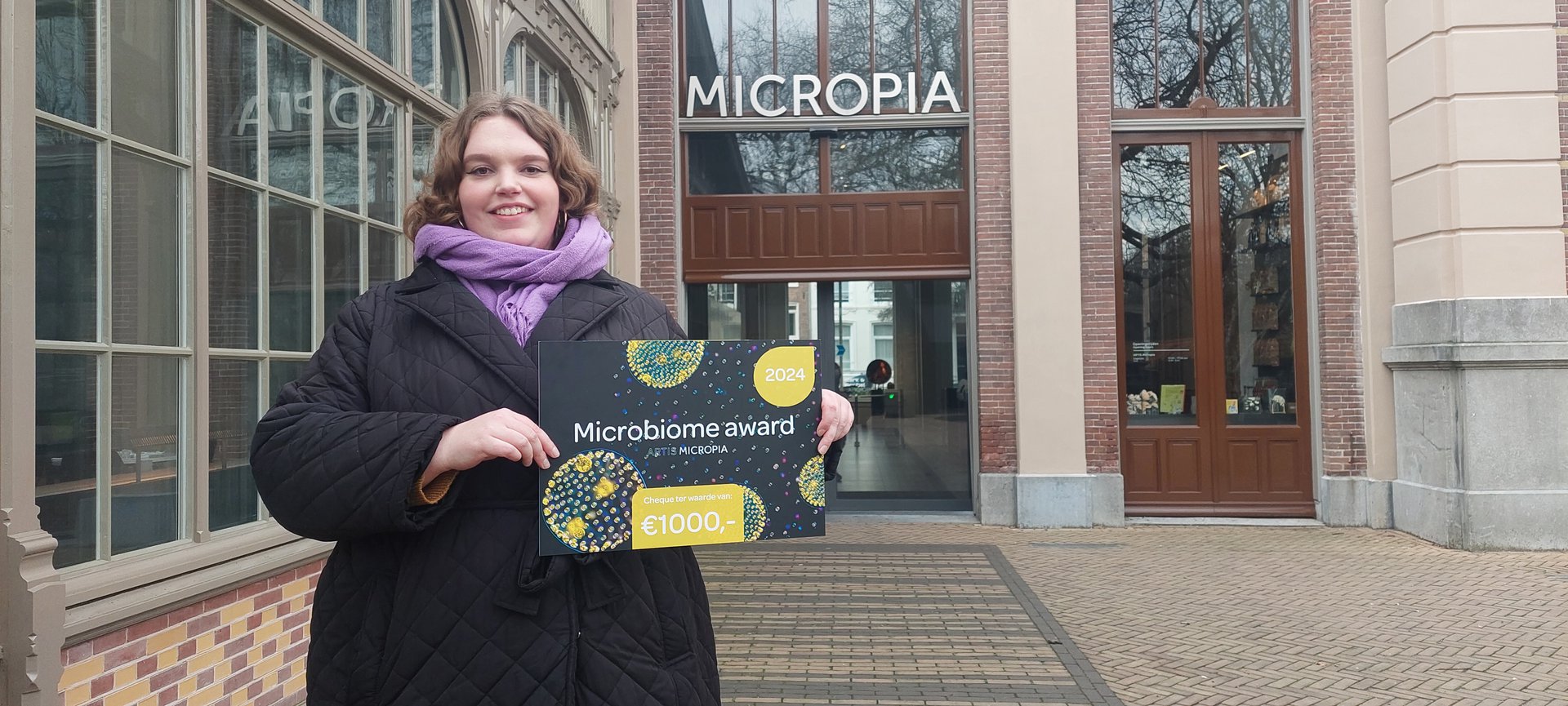The Micropia Microbiome Award
Every year, the Micropia Microbiome Award is presented at the conclusion of the 'The Human Microbiome in Health and Disease' course, organized by Micropia professor Remco Kort for students of the Vrije Universiteit and other interested individuals. During this course, participants learn all about the human microbiome and its disruptions. At the end of the course, students present a research proposal and a product focusing on the balance of our microbiome.
The best research proposal is rewarded with the Micropia Microbiome Award and the opportunity to initiate research for the product with a grant of 1000 euros. This year, Rinske Verkerk secured the prize with a research proposal to investigate the correlation between the anal microbiome and the development of anal cancer.
Anal Cancer
Anal cancer is a rare but deadly condition, with 50,000 global diagnoses and 19,000 reported deaths in 2020. Treating this disease with radiation is also invasive and unpleasant. The disease is often caused by the high-risk human papillomavirus (hr-HPV), which can also cause cervical cancer.
However, recent research suggests that the anal microbiome may also play a role in the development of anal cancer. The composition of this microbiome in patients with anal cancer differs from that of healthy individuals. Before someone develops cancer, they may have lesions in the anus – high-grade intraepithelial lesions (HSILs). Not every lesion will progress to cancer, but so far, all lesions are preemptively removed. To avoid unnecessary discomfort from such treatment, three human genes can determine whether a lesion is high-risk or low-risk. However, the reason for this difference is still unclear.
Our Microbiome and Cancer Development
In her research proposal, Rinske aims to explore the influence of the anal microbiome in the progression of lesions to anal cancer. She plans to collect anal biopsies, test them for the three genes indicating whether it is a high-risk or low-risk lesion. Subsequently, an anal swab will be taken from the participants, and a bacterial DNA analysis will determine the composition of the participants' microbiome and the differences between high-risk and low-risk lesions.
By uncovering these differences and identifying certain bacterial species as markers for a higher risk of anal cancer, methods could potentially be developed to detect anal cancer very early or to identify individuals at an increased risk. Those with a low-risk profile would then be spared from a distressing treatment.
In a follow-up study, the correlation between the microbiome and cancer development can be further investigated. Perhaps some anal microbes have direct interactions with HPV, either stimulating or inhibiting infection. With these studies, treatment can be administered earlier, more efficiently, and with greater precision—a promising innovation contributing to better healthcare!

